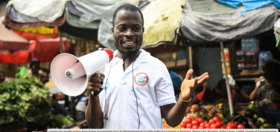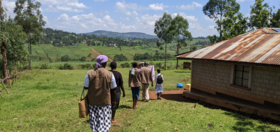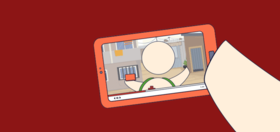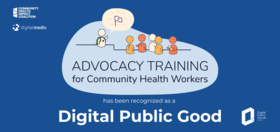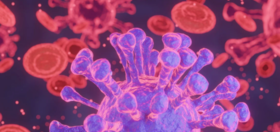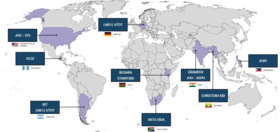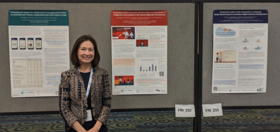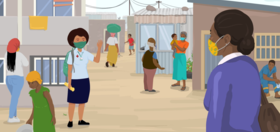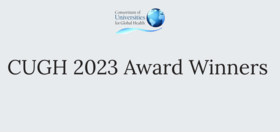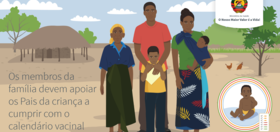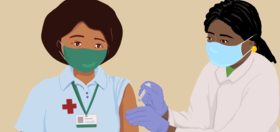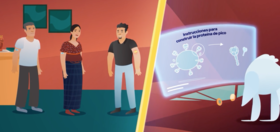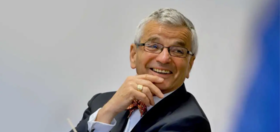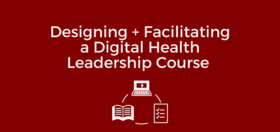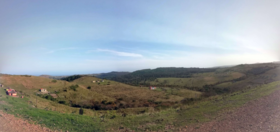News
-
New publication: Community health worker perspectives on advocacy
Explore our article in Frontiers in Public Health, published with CHIC and CHW advisors: “I’ve realized we, as CHWs, our voices can be heard and we can change our community."
April 11, 2024
-
Together Towards Tomorrow: Collaborative Design for Community Health Worker Training
Explore the collaborative design process behind our digital community health worker training on childhood illnesses.
March 29, 2024
-
"Introducing the digital version of the Global Goods Guidebook: Empowering an ecosystem of choice"
See Advocacy Training for Community Health Workers and other vetted open-access health resources in this interactive guidebook.
February 20, 2024
-
Open-Access Course on Childhood Illness Equips Community Health Workers to Save More Lives
"Caring for Sick Children in the Community" offers refresher training on fever, HIV, TB, malnutrition, and other common drivers of preventable child mortality.
January 29, 2024
-
Advocacy Training for CHWs Selected as One of Six Content Global Goods
View the announcement from Digital Square at PATH to see our Advocacy Training highlighted alongside other open-access resources supporting countries in digital transformation.
December 01, 2023
-
Webinar: How Digital Learning Supports In-Person Training for CHWs
How can we support community health workers in continuing their learning outside of in-person training sessions?
November 08, 2023
-
New Publication in Journal of Global Health Promotion
Explore the critical role of community health organizations during a health crisis in our qualitative study of COVID-19 responses in South Africa and Zambia.
November 01, 2023
-
Digital Public Goods Alliance Recognizes Advocacy Training for CHWs as a Digital Public Good
See our training's new spot in the DPG registry, open-access resources that adhere to technology best practices, do no harm, and help attain the Sustainable Development Goals.
September 19, 2023
-
Localizing Food-Based Dietary Guidelines with Community Insights in Tanzania
"Interventions, regardless of how well-intentioned they are, will fail if they fail to recognise context."
August 10, 2023
-
Preparing for Disease X: Stanford Center for Health Education and World Health Organization Awarded New Research Grant
"We are thrilled to work with the WHO Health Emergencies Program to understand how to make open online courses more accessible, equitable, and impactful.” See the news from CIGH.
July 01, 2023
-
Stanford Center for Health Education's Digital Medic Receives Grant to Boost Vaccine Confidence
See the press release from Global Impact. We are grateful and eager to continue influencing healthy behaviors through education with our partners.
June 28, 2023
-
Inspiration is Infectious: Engaging with the Social Impact Community at Global Events
The Digital Medic team hits the road, attending CUGH 2023 in Washington, D.C., the Skoll World Forum in Oxford, and IMNHC in Cape Town.
May 18, 2023
-
2022 Program Summary: Supporting Healthy Communities through Education
Learn how we worked with global collaborators to reach over 36 million learners in our 2022 Program Summary.
April 18, 2023
-
Digital Medic's "Expanding Health Education, Together" Wins Honorable Mention at CUGH-Pulitzer Center Global Health Video Competition
See the full list of awardees from CUGH and our winning video.
April 14, 2023
-
Driving a People-Centered Approach to Expand Immunization Coverage in Zambézia, Mozambique
Explore this case study from our collaborators at VillageReach to learn about the user-centered design process behind pictorial cards for caregivers in Mozambique.
March 06, 2023
-
Stanford’s Digital Medic Equips Community Health Workers Worldwide to Promote Vaccines
“A person’s beliefs and values can influence how they understand health concepts [...] and how they make decisions." See our feature on Stanford Digital Education's website.
February 23, 2023
-
Understanding and Overcoming Vaccine Hesitancy Among Indigenous Populations in Guatemala
Learn how we worked with Wuqu' Kawoq | Maya Health Alliance & the University of California San Francisco to create COVID-19 educational videos and change vaccine perceptions.
February 01, 2023
-
A Note from our Founder: Reflections on 2022 and Renewed Hope for 2023
Dr. Charles Prober reflects on our 2022 accomplishments and plans to extend accessible education and training on global health issues in 2023.
January 09, 2023
-
Designing and Facilitating a Digital Health Leadership Course for Stakeholders Across Africa
Discover the Digital Health Applied Leadership Program at the University of Global Health Equity, an initiative for governmental stakeholders in several African countries.
December 19, 2022
-
Site Visits to the Eastern Cape: A Visual Diary from Digital Medic South Africa
Digital Medic team members Kira-Leigh Kuhnert and Monika Deschodt share insights from their visits with Philani and One to One Africa in the rural Eastern Cape.
November 28, 2022

